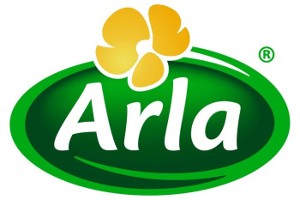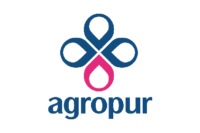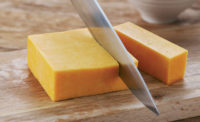 Arla Foods announced today an ambitious plan to boost its exports outside of the European Union and to make its dairy plants more environmentally friendly.
Arla Foods announced today an ambitious plan to boost its exports outside of the European Union and to make its dairy plants more environmentally friendly.
The Denmark-based international dairy cooperative said it plans to invest 2.2 billion Danish krone (about $398.2 million) in 10 of its dairy sites in 2014. Arla's stated long-term goal is to double its exports of European dairy products to growth markets outside the EU by 2017.
“This year we are increasing our investments to dairy sites that contribute to our export out of Europe," said Vice-CEO Povl Krogsgaard. "Our sales on the growth markets outside the EU are growing at a fast pace, and we must prepare ourselves to meet the rapidly growing demand in years to come. In Arla we are determined to create good growth, and we are therefore also investing more than 125 million DKK (about $22.6 million) in projects that will make our production chain even more climate-friendly,” Krogsgaard said in a statement.
In total, about $136 million will be invested in production for Arla’s strategic growth markets outside the EU – Russia, China, the Middle East & Africa.Arla Foods is an international dairy company owned by 12,000 farmers from Denmark, Sweden, the United Kingdom, Germany, Belgium and Luxemburg. Its consumer brands include Lurpak and Castello. Arla Foods states it is the world's largest manufacturer of organic products.
Arla is building a lactose plant in Denmark
The largest single investment this year is about $96 million for the ongoing construction of a new lactose production site near Nr. Vium in Denmark. The new site will produce value-added lactose ingredients based on whey from Arla’s nearby cheese production. These ingredients will be used for child nutrition products and other categories and sold to the food industry globally by Arla’s subsidiary Arla Foods Ingredients.
Krogsgaard said whey-based ingredients for the global food industry are "one of our most profitable business areas" that must be doubled by 2017. The new lactose site will produce ingredients for child nutrition products that are in high demand especially in Asia, he said.
Other examples of significant investments in 2014 are:
- $22.8 million for Pronsfeld dairy in Germany, which exports products such as UHT-milk and milk powder to the markets in Asia and Africa.
- $17.1 million for a dairy in Upahl, Germany where the production of quark is to be expanded.
- $14.6 million a dairy in Oswestry in the UK, where a new cheese packaging facility will be constructed.
- $11.9 million for the Holstebro Flødeost dairy in Denmark, where a new packaging line for Buko cream cheese is to be built.
- $7.6 million for Falkenberg dairy in Sweden, which will re-open as a cottage cheese dairy (in total this investment will amount to $ 26.7 million between now and 2016).
Arla to spend $22.6 million to make dairy plants more eco-friendly
More than $22.6 million will be spent on making Arla’s production more environmentally friendly. Arla has 67 dairy sites around the world.
“The target set in our climate strategy in Arla is to reduce our overall CO2 emission by 25% by 2020. We are investing in new state-of-the-art heating pumps and water-saving equipment. This will reduce our energy consumption and our emission of CO2,” Krogsgaard said.
Arla’s investments in environmental improvements are expected to reduce the Group’s overall energy consumption in production by 2.3% in 2014, which is equivalent to a reduction of 62,115 MWh (or the same as the annual energy consumption of approximately 13,800 standard households).
Doubling food ingredient sales is a key element of Arla's 2014 plan
Arla continues to significantly increase its exports to the strategic growth markets of Russia, China, the Middle East and Africa up to and during 2017. Arla is therefore investing in new dairy expansions to increase the volume of products available for export.
Arla's aim is to double the revenue of its subsidiary Arla Foods Ingredients, which sells whey proteins, lactose and milk-based ingredients to the global food industry to more than $905 million in 2017.
Arla's climate strategy aims to achieve a reduction in total Group CO2 emissions by 25% before 2020. Therefore Arla is investing in projects that will deliver environmental improvements at individual dairies, in order to reduce energy consumption.



